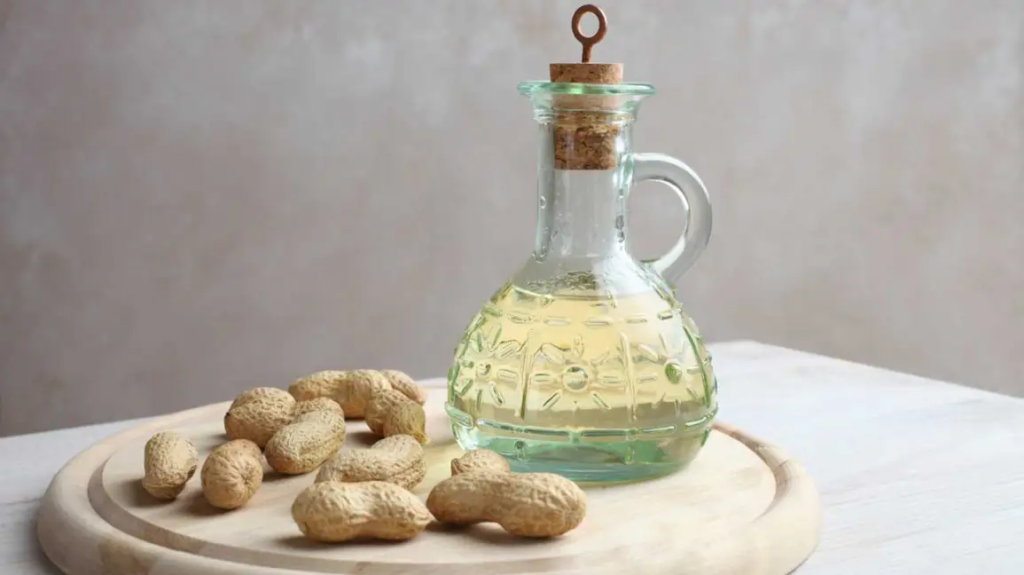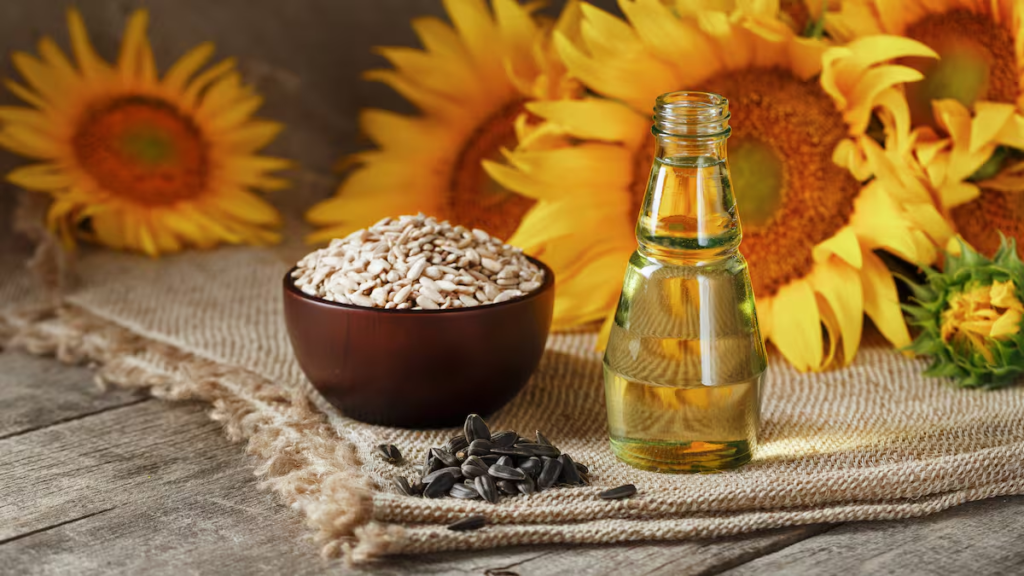Peanut oil, also known as groundnut oil, is a popular type of vegetable oil derived from peanuts, which are technically legumes. This oil is widely used in cooking due to its high smoke point, neutral flavor, and versatility. Although peanuts are not true nuts, peanut oil is often categorized alongside other seed oils because it is extracted from the seeds of the peanut plant. Its nutritional profile, cooking applications, and role in the food industry make peanut oil a staple in many households and commercial kitchens.
Understanding Peanut Oil: Is It a Seed Oil?
Peanut oil is classified as a seed oil, which refers to oils extracted from the seeds of various plants. While peanuts grow underground and belong to the legume family, their seeds are pressed to produce the oil. This process aligns peanut oil with other seed oils, such as sunflower oil, soybean oil, and sesame oil.
Seed oils are characterized by their ability to contain high levels of unsaturated fats, and peanut oil is no exception. It is especially high in monounsaturated fats, making it a healthier option for cooking compared to saturated fats like butter or lard.
Nutritional Composition of Peanut Oil

Peanut oil has a rich nutritional profile that makes it both a culinary and health-conscious choice. Below are the key components:
- Monounsaturated Fats (MUFA): These fats are considered heart-healthy as they help reduce bad cholesterol (LDL) while increasing good cholesterol (HDL). Peanut oil contains approximately 48% monounsaturated fats.
- Polyunsaturated Fats (PUFA): Peanut oil includes around 34% polyunsaturated fats, which provide essential fatty acids such as omega-6. These are important for maintaining healthy skin, hair, and brain function.
- Saturated Fats: While peanut oil has a lower content of saturated fats (18% compared to other cooking oils), this contributes to its stability and long shelf life.
- Vitamin E: Peanut oil is naturally rich in tocopherols, a form of Vitamin E that acts as an antioxidant. This nutrient plays a vital role in reducing oxidative stress and protecting cells.
- Phytosterols: These plant-based compounds are linked to lowering cholesterol levels, making peanut oil an appealing option for heart health.
Properties of Peanut Oil

Peanut oil is renowned for its culinary versatility and stability, which are derived from its chemical properties. Some of the notable features include:
- High Smoke Point: Peanut oil boasts a smoke point of approximately 450°F (232°C), making it ideal for high-heat cooking methods such as frying, grilling, and sautéing. Its ability to withstand high temperatures without breaking down ensures clean and flavorful cooking.
- Neutral Flavor: Unlike oils with pronounced flavors (e.g., sesame or olive oil), refined peanut oil has a mild taste that complements a wide range of dishes without overpowering the ingredients.
- Stability: The low polyunsaturated fat content helps peanut oil resist rancidity, extending its shelf life. This stability is particularly useful in commercial applications.
- Types of Peanut Oil:
- Refined Peanut Oil: A highly processed version suitable for frying and high-heat cooking.
- Unrefined Peanut Oil: Retains more flavor and nutrients but is less suitable for high temperatures.
- Roasted Peanut Oil: Offers a rich, nutty flavor and is often used in salad dressings or as a finishing oil.
Culinary Applications
Peanut oil is a favorite ingredient in kitchens around the world, especially in countries where frying is a predominant cooking method. Its characteristics make it ideal for:
- Deep Frying: Peanut oil’s high smoke point prevents it from burning or producing off-flavors during frying. It is widely used for foods like fried chicken, French fries, and tempura.
- Stir-Frying: In Asian cuisines, peanut oil is a staple for stir-frying vegetables, meat, and seafood due to its ability to maintain flavor and consistency.
- Salad Dressings and Marinades: Unrefined peanut oil or roasted peanut oil adds depth to salad dressings and marinades, giving dishes a subtle nutty undertone.
- Baking: Peanut oil can be used in baked goods as a substitute for butter or vegetable oil, enhancing moisture and texture.
- Commercial and Packaged Foods: Peanut oil is often used in snack production due to its stability and long shelf life, making it ideal for items like roasted nuts, chips, and baked crackers.
Health Benefits and Considerations

Peanut oil offers several health benefits when consumed in moderation:
- Heart Health: Its high monounsaturated fat content supports cardiovascular health by improving cholesterol levels and reducing inflammation.
- Antioxidants: The Vitamin E and tocopherols in peanut oil help combat oxidative stress and may contribute to skin health and anti-aging.
- Allergy Considerations: Despite being derived from peanuts, refined peanut oil does not contain significant levels of peanut proteins, making it generally safe for individuals with peanut allergies. However, unrefined peanut oil may pose a risk and should be avoided by those with sensitivities.
- Weight Management: Peanut oil’s calorie density requires mindful consumption, as excessive use could contribute to weight gain.
Environmental and Economic Impact
Peanut oil has significant agricultural and economic importance, especially in countries where peanuts are a major crop. Key producers include China, India, and the United States, with peanut oil playing a vital role in both local cuisine and global trade.
Moreover, the extraction and refinement processes of peanut oil are relatively efficient, and peanut shells and byproducts are often repurposed for other industries, reducing waste.
Alternatives to Peanut Oil
While peanut oil offers numerous benefits, some individuals seek alternatives due to allergies or dietary preferences. Common substitutes include:
- Canola Oil: Low in saturated fat and high in monounsaturated fat, making it a heart-healthy option.
- Avocado Oil: Offers similar properties with a high smoke point and rich monounsaturated fat content.
- Sunflower Oil: Another seed oil with a high smoke point suitable for frying.
- Soybean Oil: Widely available and affordable, though higher in polyunsaturated fats.
Conclusion
Peanut oil, a versatile and widely used seed oil, offers a unique combination of health benefits, culinary applications, and practical properties. Whether deep frying, stir-frying, or baking, peanut oil’s stability, neutral flavor, and high smoke point make it a go-to choice for chefs and home cooks alike. However, mindful consumption and allergy awareness are crucial to ensuring its safe and beneficial use.
Also Read: Do Fish Drink Water? The Surprising Truth About Underwater Hydration




